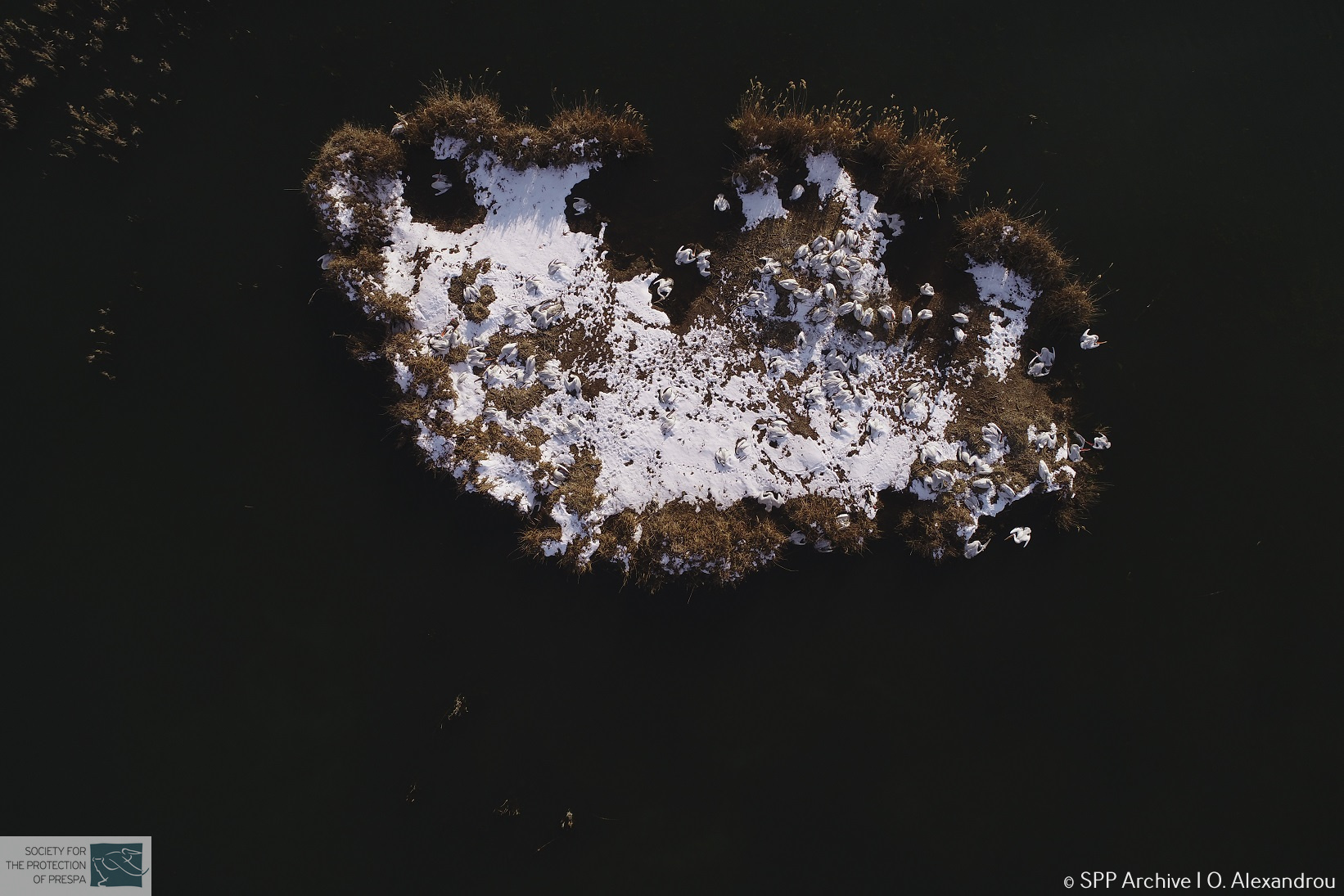The Dalmatian pelican population of NW Greece has been severely affected by an unprecedented outbreak of avian influenza. The outbreak started and is currently in progress at the Prespa National Park in Greece, having affected mainly the Lesser Prespa Lake Dalmatian pelican colony.
According to reports from the Society for the Protection of Prespa (SPP), the first dead birds were observed around mid of February, about a week after the first pelicans had arrived in Prespa from their wintering grounds in Turkey and North-Eastern Greece. After only a week, a total of 209 dead Dalmatian pelicans were recorded in the colony. Meanwhile, among the still alive birds, many had already started displaying neurological symptoms (i.e. not being able to hold their heads up).
By the 9th of March, a total of 1,003 dead Dalmatian pelicans had been recorded! The National Reference Laboratory for Avian Influenza soon confirmed the birds died from the H5N1 strain of avian influenza. Greek regional veterinary authorities immediately announced and started implementing biosecurity measures for poultry management.
The collection and removal of the affected birds’ corpses is a necessary measure to take in order to minimize the dispersal of the disease to other wetlands, as well as to protect the “next wave” of pelicans and other migratory waterbirds and raptors arriving soon. Although a top priority, the effective monitoring and clearing of the area of any remaining carcasses has proven so far rather challenging considering the sheer size of the birds, the high risk of disturbance of the still unaffected colonies and the low temperatures and continuous snow fall that make up for unusually severe weather conditions for this time of year.
The rapid progress and the severity of the disease has concerned scientists monitoring the Dalmatian pelican’s breeding population in Greece and the Black Sea-Mediterranean flyway in general. In recent years, the lake Prespa breeding colony has grown to be considered one of the most important for the global population of the species.
“We are following closely the developments of the avian influenza outbreak in Northern Greece and are extra vigilant regarding the monitoring of our project sites in Messolonghi Lagoon and Amvrakikos Wetlands where the breeding season of Dalmatian pelicans is in progress. Thankfully, no casualties or suspicious incidents are observed.”, commented Manolia Vougioukalou, Project Coordinator of the Pelican Way of LIFE project for the Hellenic Ornithological Society / BirdLife Greece.
For additional information regarding the avian influenza and the managing of its outbreaks:
1. CMS' breifing note on avian influenza after recent outbreaks in UK and Israel
2. Questions & answers regarding avian influenza provided by the Society for the Protection of Prespa (SPP)
3. You can also watch the very useful webinar titled 'Managing large-scale highly pathogenic avian influenza (HPAI) outbreaks in wild birds' (part 1 & part 2) organized only a few weeks ago by the United Nations' Food and Agriculture Organization (FAO).
4. Mass mortality of Dalmatian pelicans observed in Greece due to Avian influenza - Official website of the Pelican Way of LIFE project.



